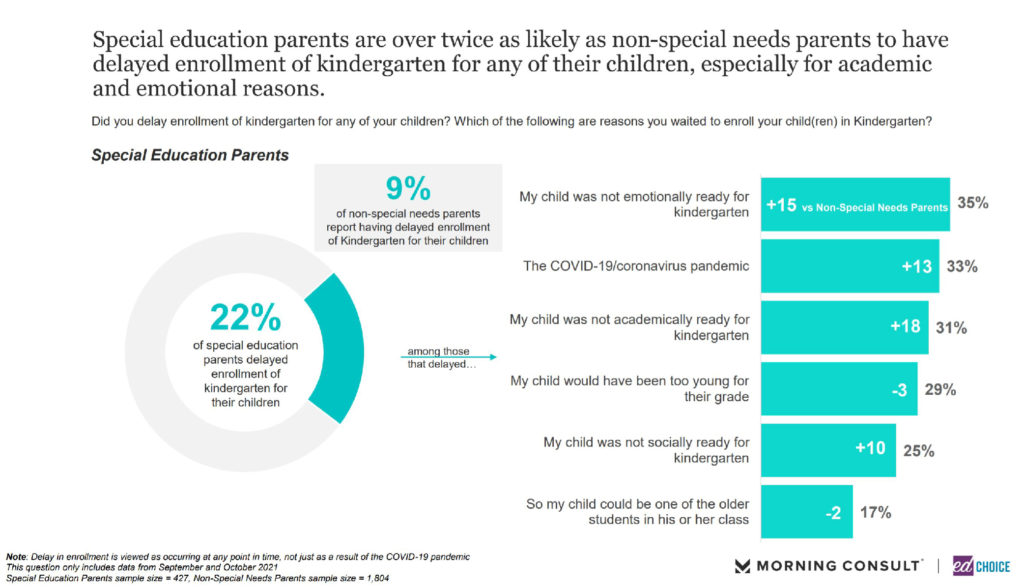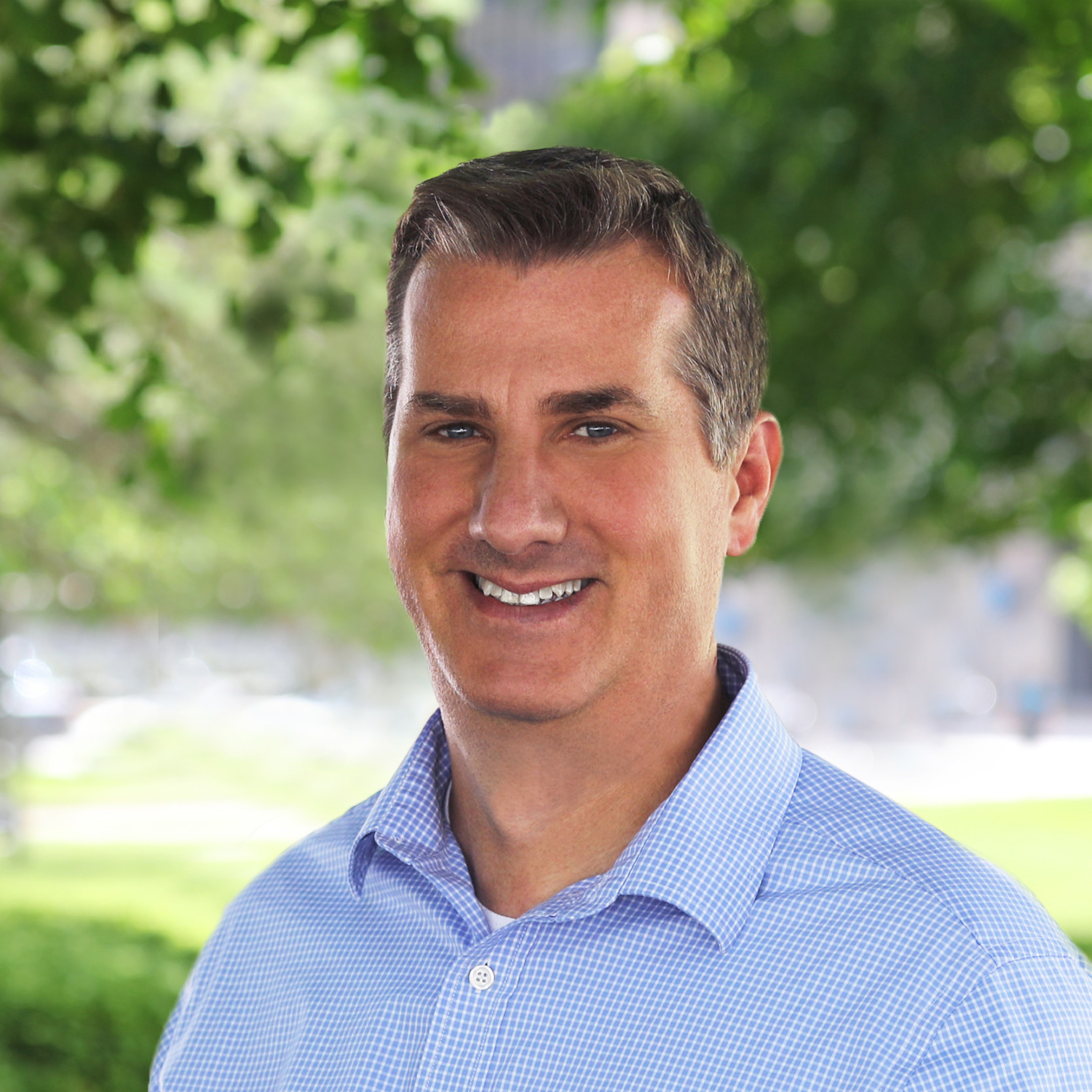Navigating the Pandemic: The Views of Special Education Parents
One year ago Ashley LiBetti wrote a post for The 74 that chillingly described the fraught schooling dilemmas for many special education students and their families during the pandemic:
“Since COVID-19 upended American life, story after story has highlighted students with disabilities falling behind and families bringing lawsuits to force schools to serve students with special needs. Schools struggle to consistently engage students with disabilities in distance learning, and attendance is often lower for these students than for any others. Virtual learning, by and large, is not working for students with special needs.”
A recent New York Times story brought to light a New York State Comptroller’s report indicating “the shift to remote learning has “exacerbated pre-existing achievement gaps” for children with disabilities.” That same state agency report estimated that as of November 2020, nearly half of the 230,000 students with disabilities “received only part of the interventions specified in their IEPs or none at all.” In New York City alone, more than 100,000 students were not receiving the instruction, therapies, or other services obligated to them in their individualized education plans (IEPs).
The National Center for Education Statistics (NCES) estimates nearly 7 million students are in special education in America’s public elementary and secondary schools. That number does not include the additional special education students in private schools or receiving individualized special education determined at the school level. This sizeable student population includes substantially more legal and financial considerations, and more heightened parental involvement, than most other student groups.
Today we release a new polling report that describes the firsthand schooling experiences and views of special education parents during the coronavirus pandemic. The pandemic clearly has hit students with disabilities and their families very hard, with special education parents answering distinctly from parents who do not have children with special needs on a number of questions.
At the same time, special education parents appear to recognize some hope for K-12 education generally. They share similar views with other parents about returning to school in person, and requirements for masking and vaccinations, though there are some differences of opinion regarding younger children. And perhaps most noteworthy, special education parents appear more inclined to be open to opportunities when it comes to hybrid schooling, learning pods, tutoring, and different types of educational choice policies.
Since January 2020, we have surveyed a nationally representative sample of American adults every month. Starting in November 2020 we began to identify parents of school-age children who were in special education at their school. In our new report, we describe trends based on the monthly samples of special education parents (usually around 200 to 300 respondents). On many questions we also present snapshots of averaged responses based on the cumulative sample for the period July to October 2021. (1,007 special education parents; 3,648 non-special needs parents). This latter approach allows us to report more reliable information about special education parents’ opinions by demographic.
For our latest polling report we identified two main groupings of school parents: (1) those who have children in special education at a school (public or private); and (2) those who do not have any children with a disability of any kind. To give a little more clarity, the following are the ways we defined our parent respondent groups:
“Special Education Parents” – Have at least one child, under the age of 18 that is currently enrolled in school, that has had a health or education professional determine they have a physical, learning or social/emotional disability. Additionally, that same child must also be a part of an Individualized Education Program (IEP), or a similar special services plan.
“Non-Special Needs Parents” – Do not have any children with a diagnosed physical, learning or social/emotional disability.
Here is what we learned:
1. Special education parents report higher levels of disruption than other parents. That observation is for the period of July to October this year. We see 10-point gaps between the parent groups when considering those pandemic-driven challenges to personal routine or to the household.
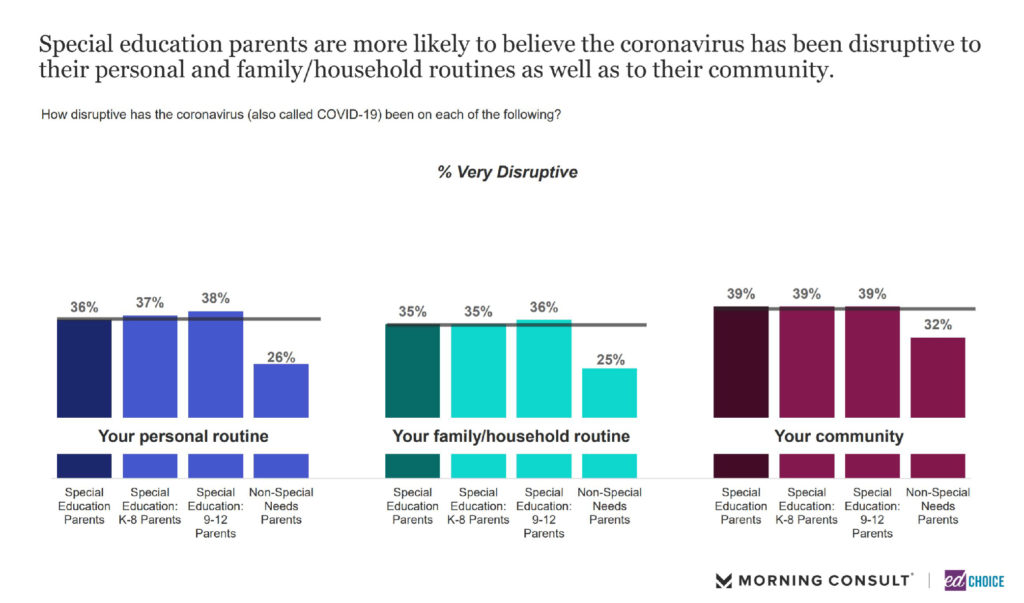
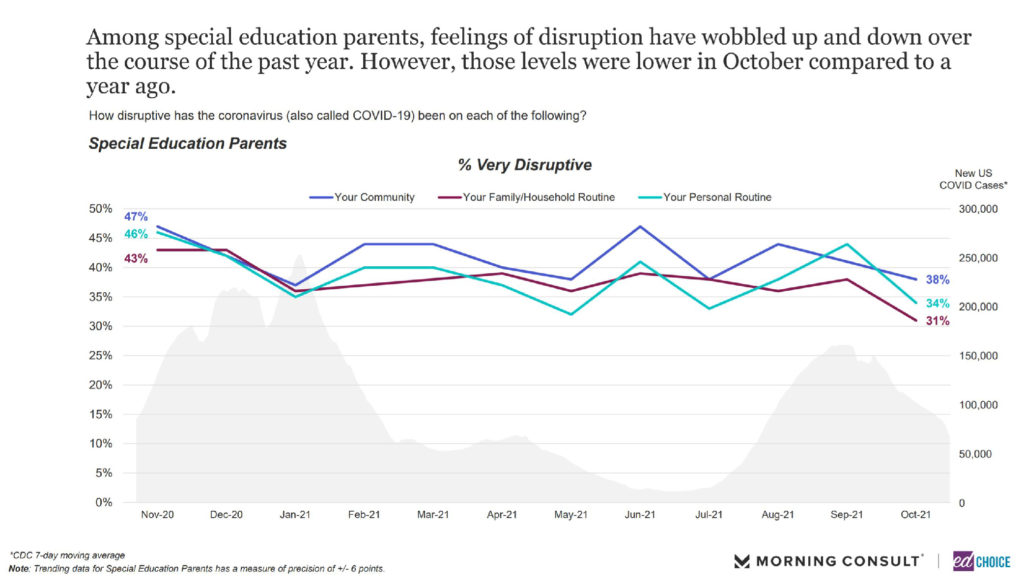
2. Special education parents appear to be a little more optimistic about K-12 education than other parents. Despite the impact of the coronavirus over the past 20 months, special education parents are more likely than other parents to say K-12 education is going in the “right direction” in their home state as well as nationally. Results in the chart below reflect averaged responses from July to October. Positive sentiment increased in the late winter last school year. During the back-to-school time there were steep declines among those special education parents giving a “right direction” response. Views about K-12 education nationally have been most prone to large increases or decreases in the past year.
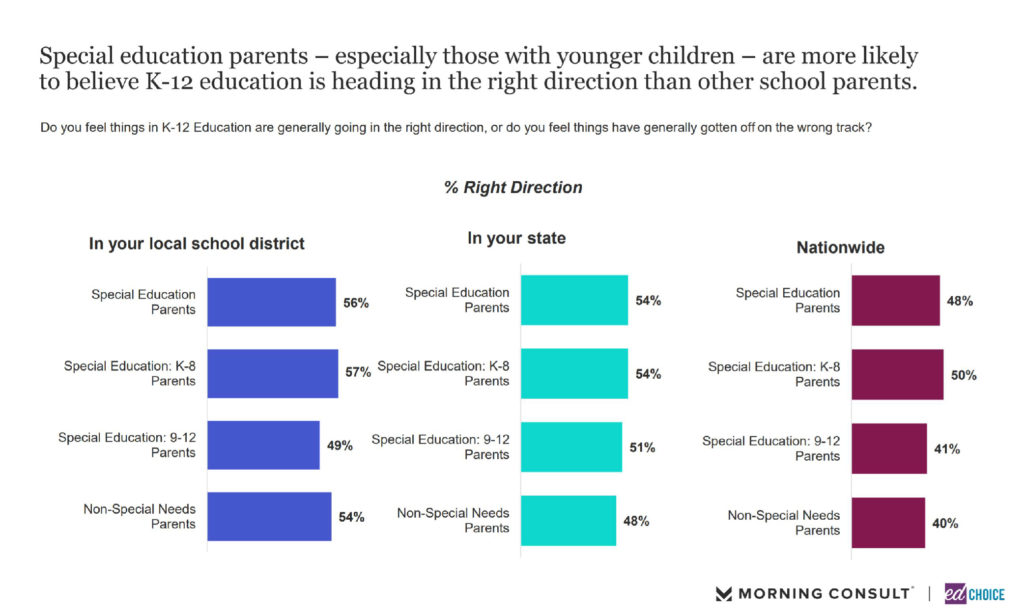
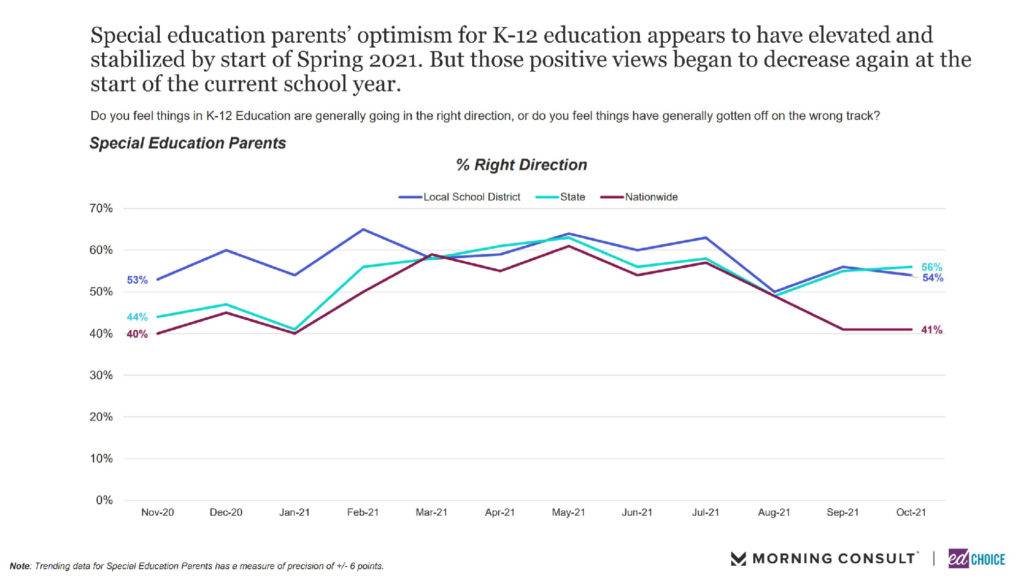
3. In the first quarter of the school year, parents shared a common desire about their children returning to school. Large majorities of special education and non-special needs parents wanted their kids to be back at school with teachers and their classmates. That said, although October comfort levels remained fairly high, they are still below peaks observed during the last summer.
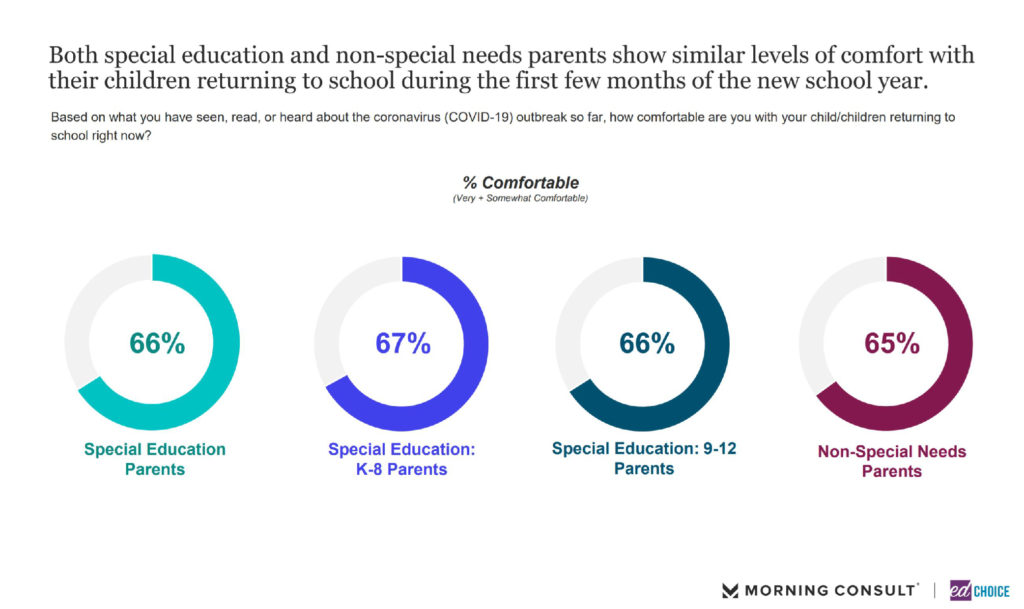
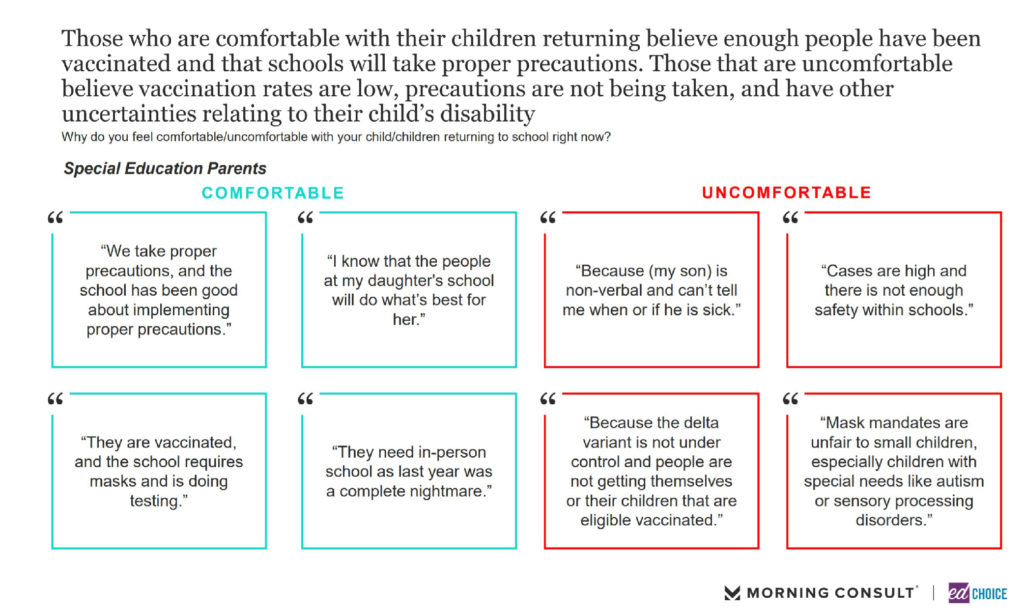
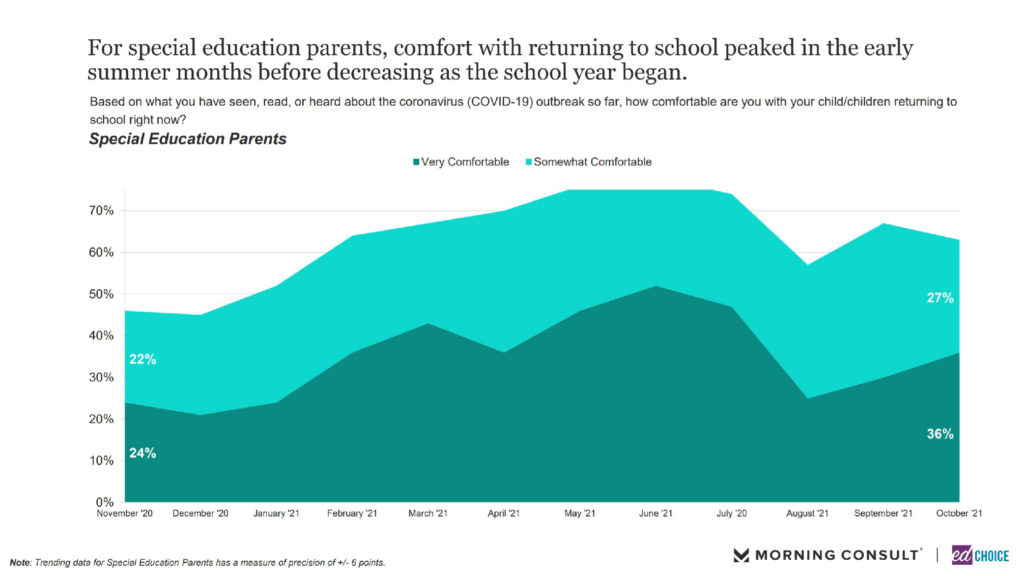
4. A very large proportion of special education parents –two out of three –say they prefer having their child be schooled at home at least one day per week. By a margin of nine percentage points, special education parent are more likely than other parents to want to have at least some schooling-at-home per week. Special education parents are also more likely than others to indicate more positive views for homeschooling because of the coronavirus pandemic.
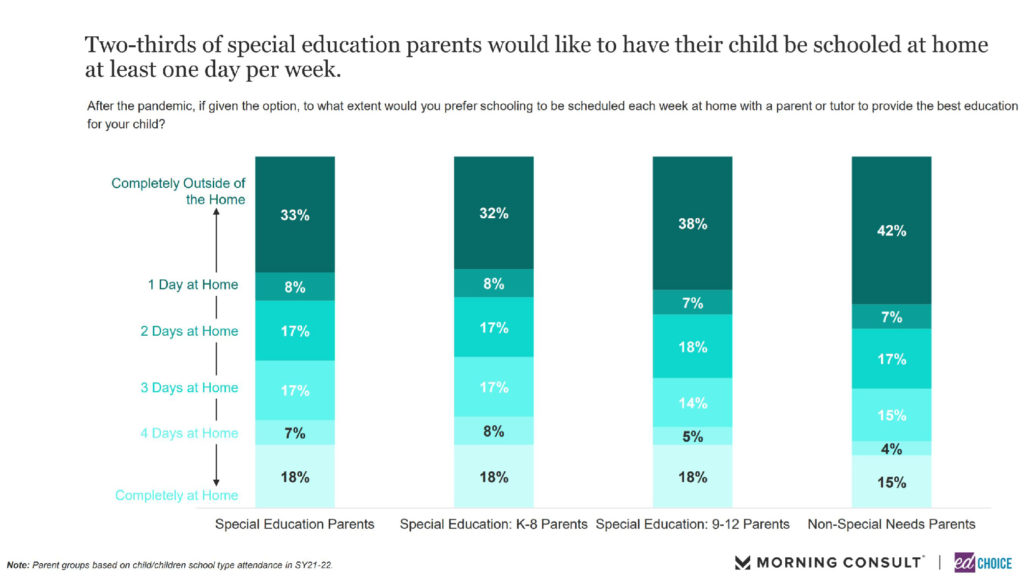
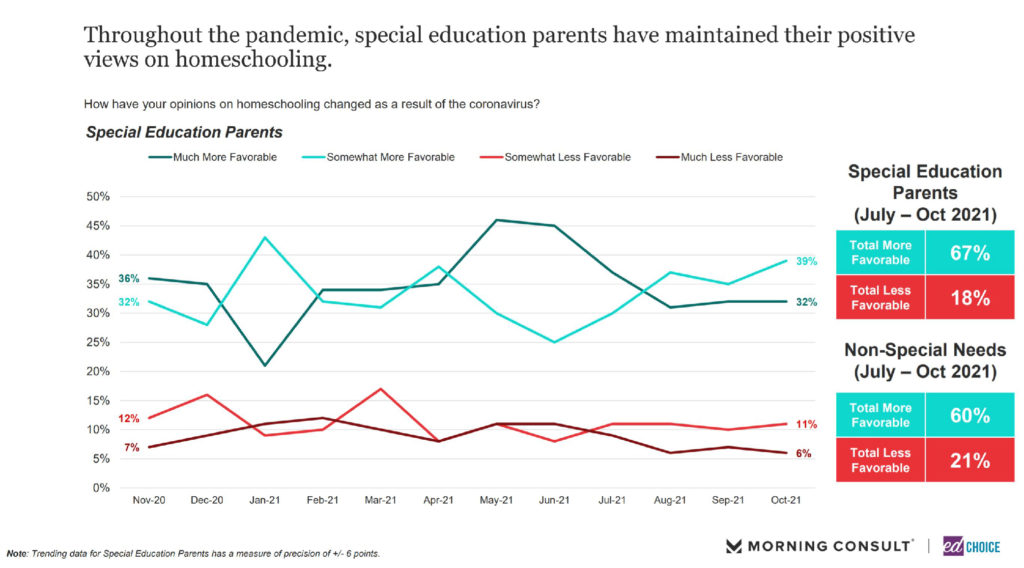
5. Special education parents are much more likely than other parents to report they have a child in a learning pod or receiving tutoring outside of school. One-quarter of special education parents (27%) report having at least one child in a learning pod at some time during the July-October time period. That’s nearly three times the level reported by other parents. As of October, nearly 40 percent of special education parents were expressing interest in learning pods, compared to 30 percent of non-special needs parents. These patterns are similar to the responses to our questions about tutoring outside of school. Interest in learning pods and tutoring vary a great deal within the demographics of the special education parent population in our survey. There is a very wide range of reported pod interest, spanning nearly 60 points. The interest range is narrower for tutoring (40 points).
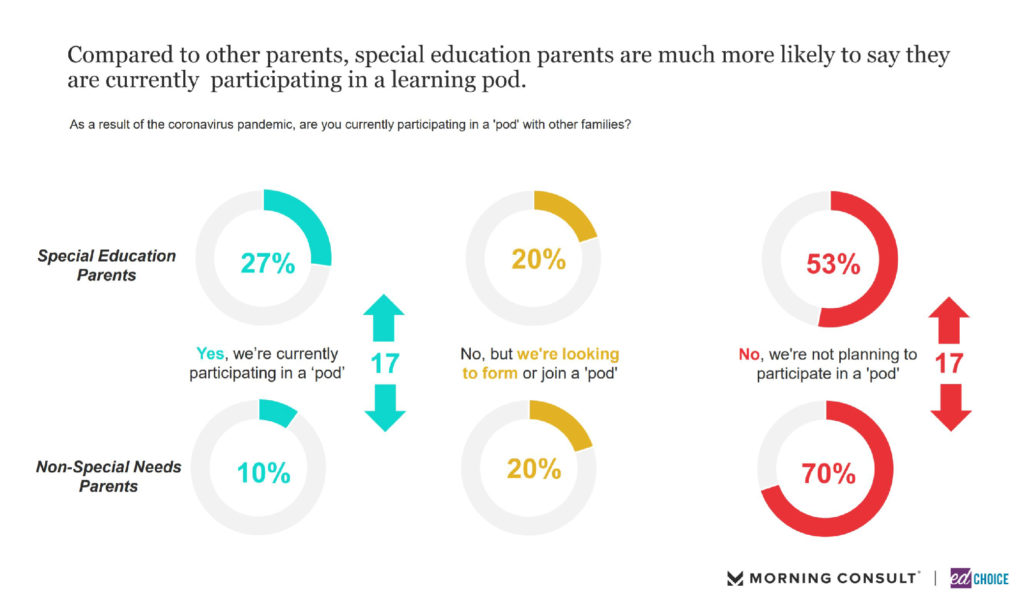
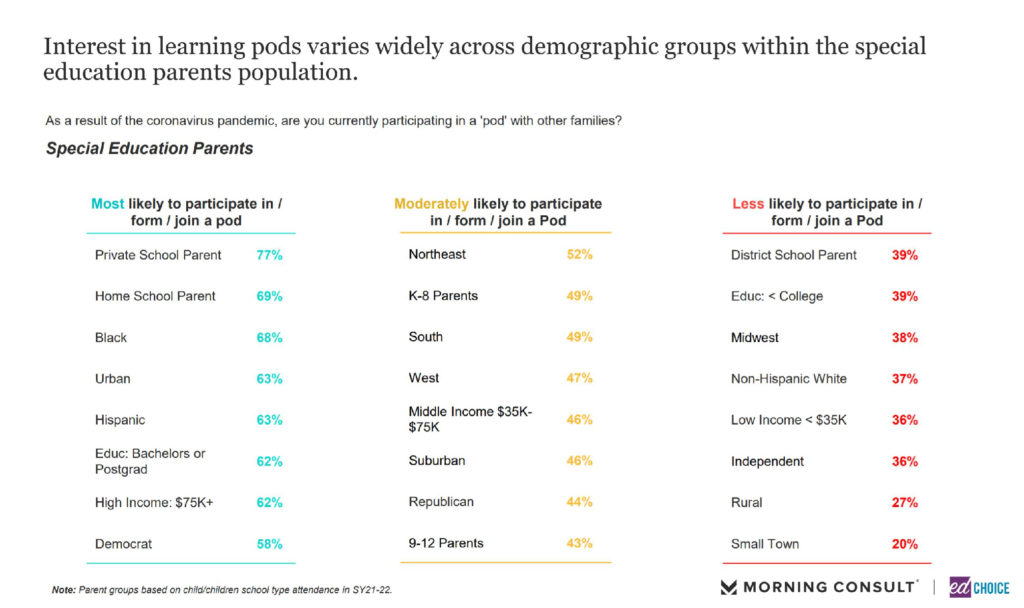
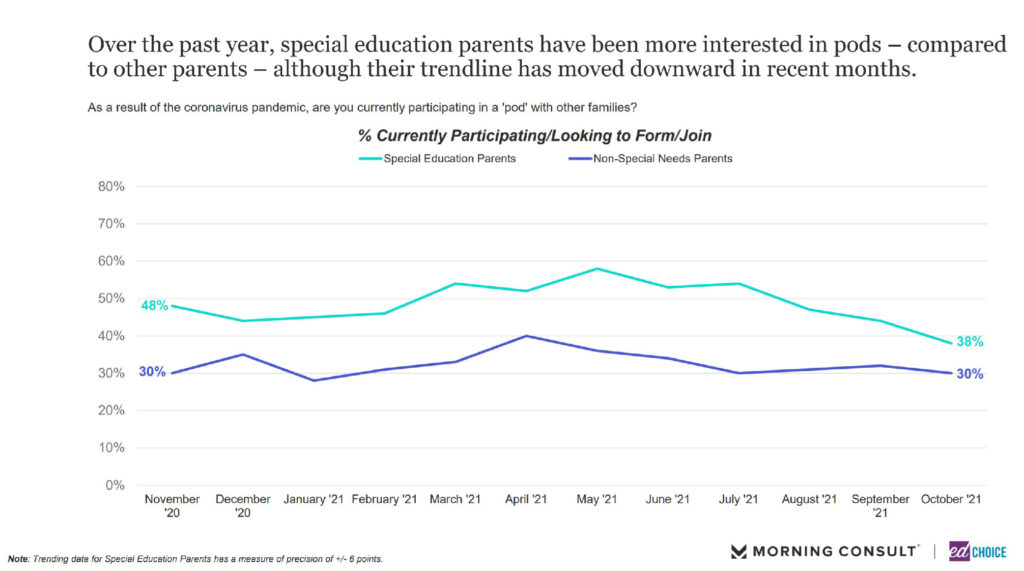
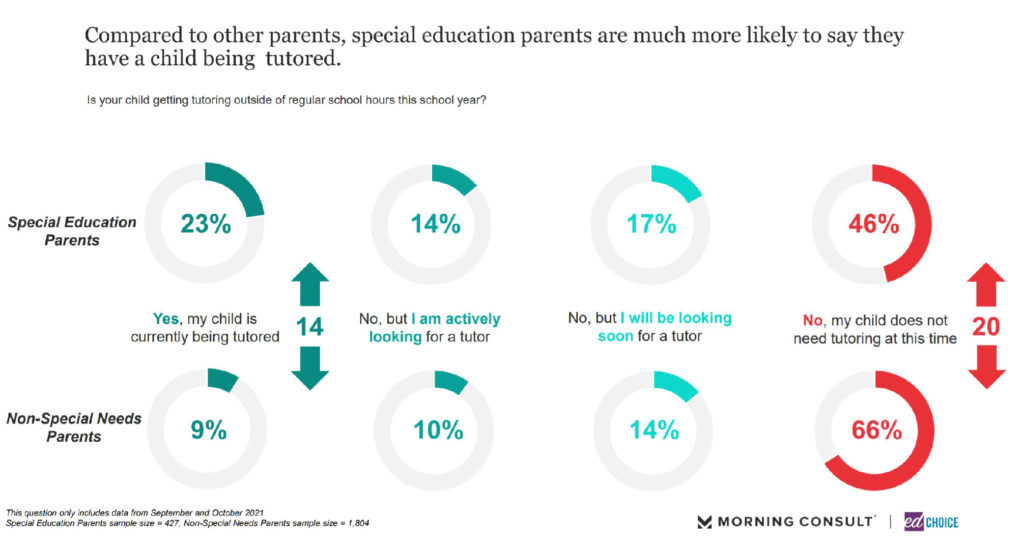
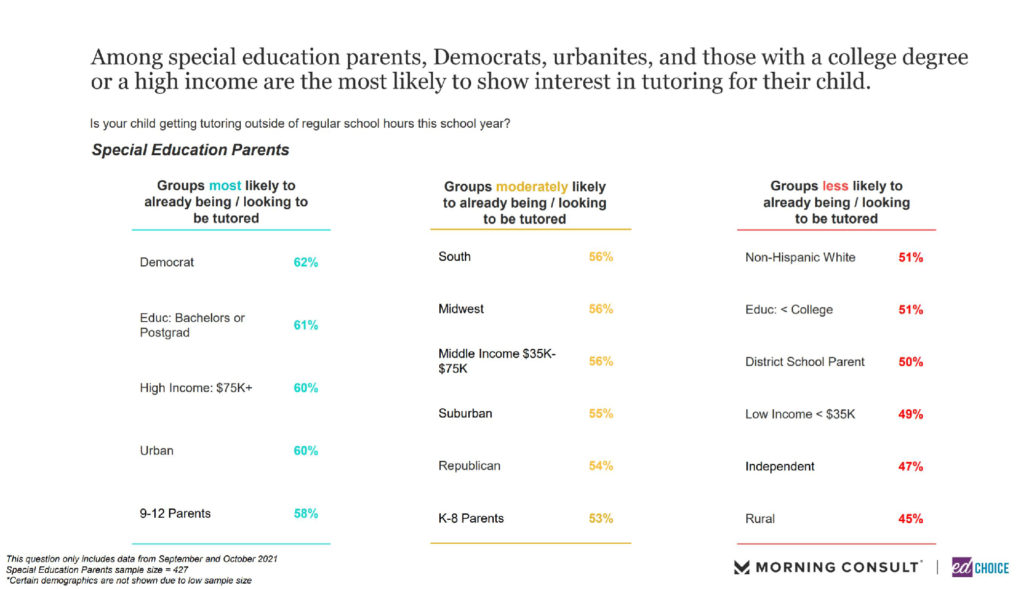
6. Special education parents express very high levels of support for education savings accounts (ESAs), school vouchers, and charter schools. From July to October, special education parents appeared slightly more likely to be supportive than non-special needs parents. This past October, at least 80 percent of special education parents said they supported the three types of K-12 choice policies. Over half signaled their strong support for ESAs. That more intense support has grown by 15 points over the past year.
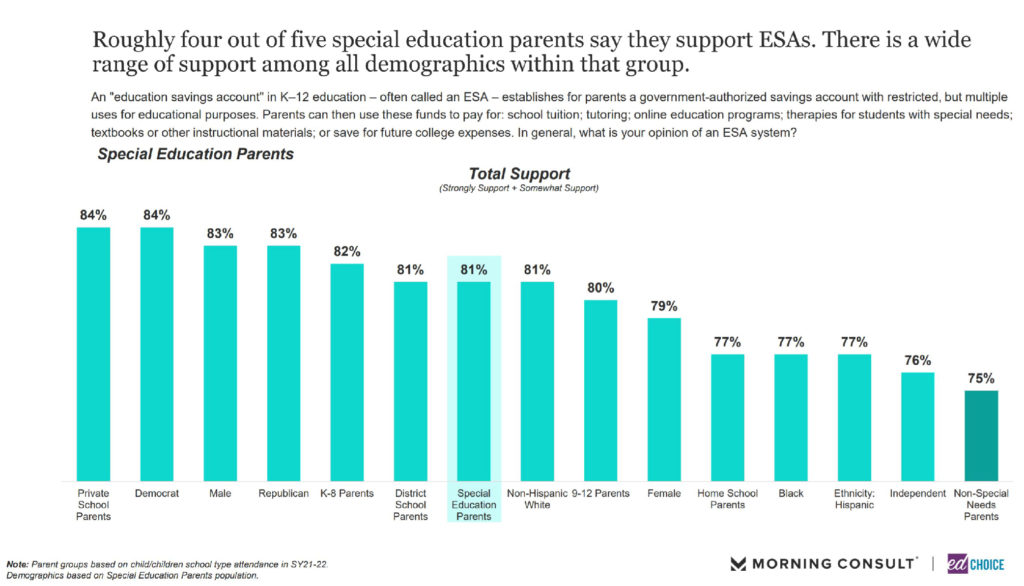
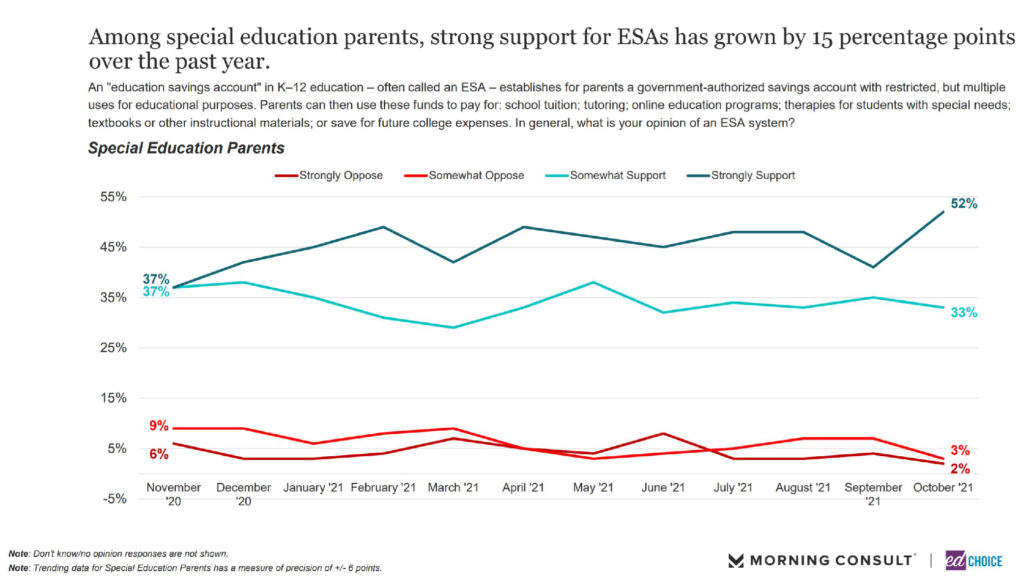
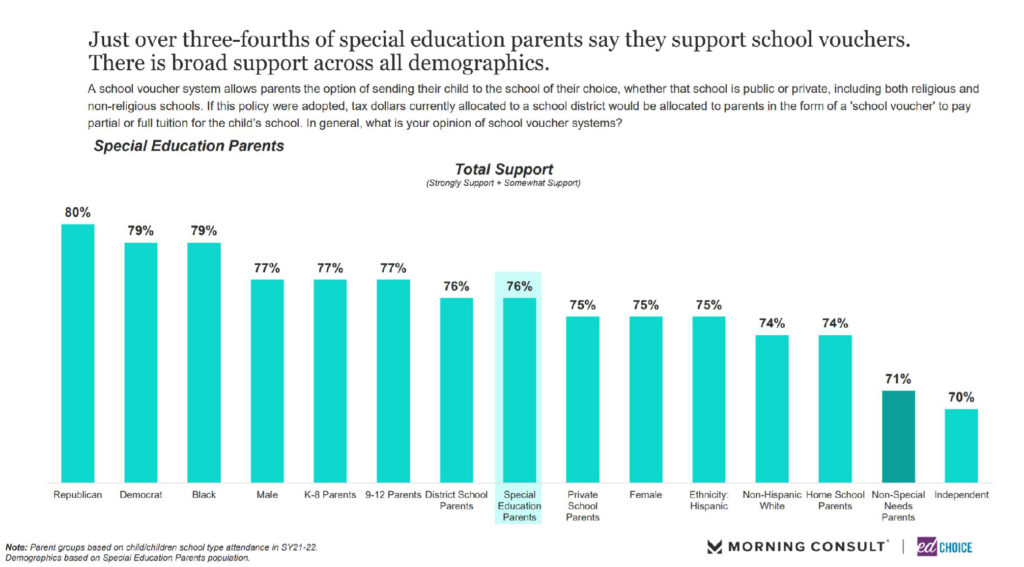
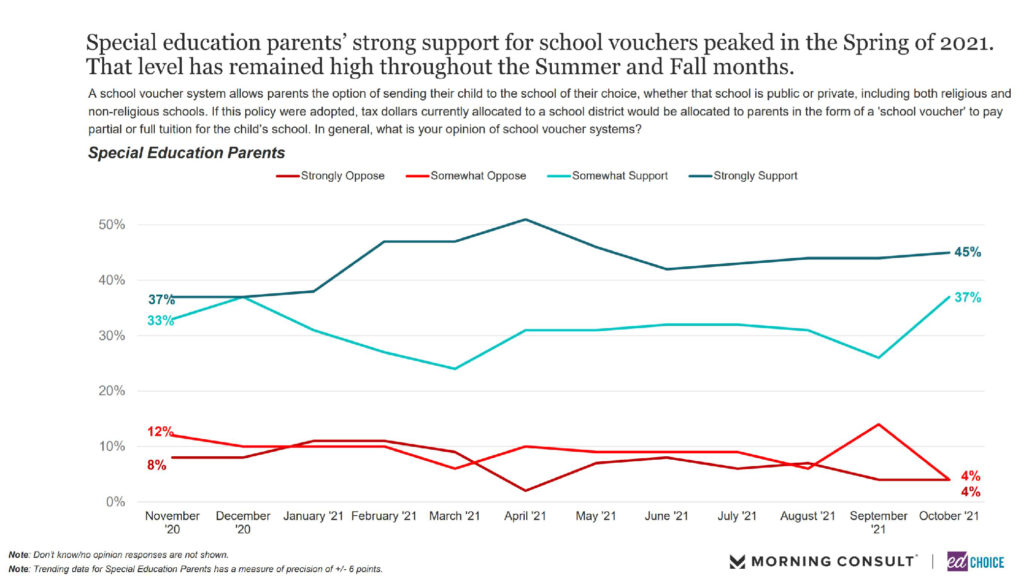
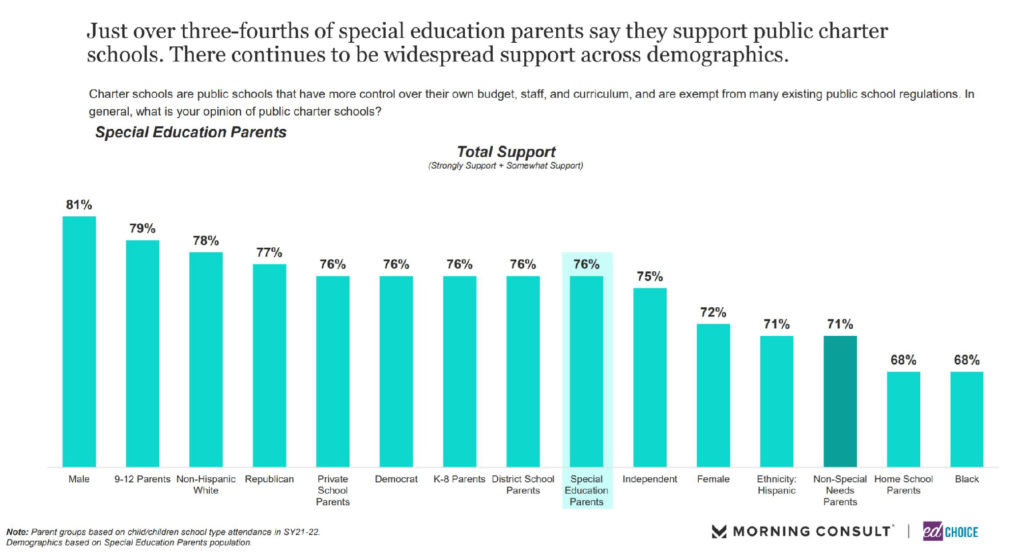
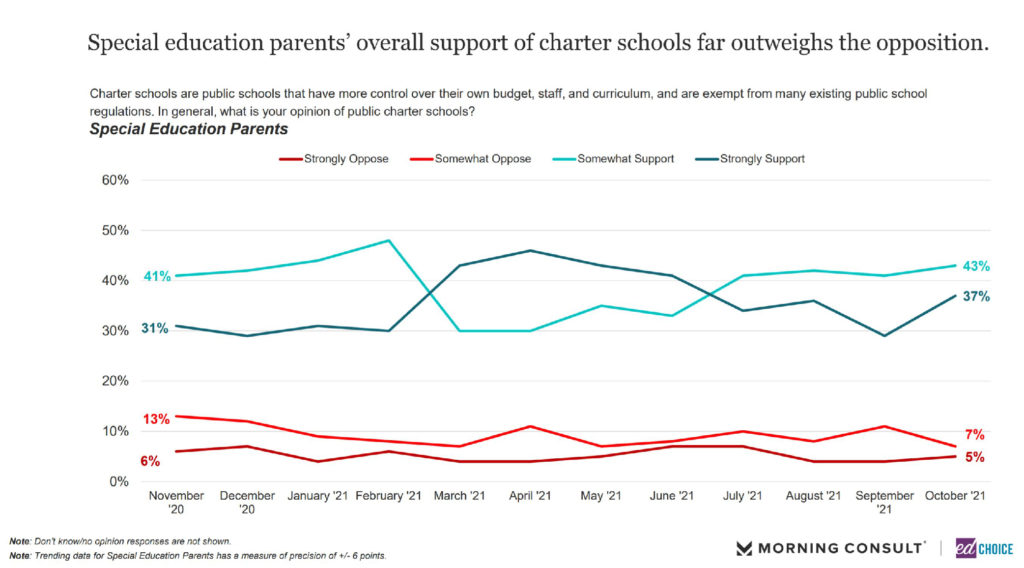
7. Special education parents believe individualized learning plans and access to laptops/tablets and internet connectivity would be most beneficial to their children coming out of the pandemic. They are more likely than other parents to say those opportunities, plus access to mental health supports and counseling, will be helpful to their children. We see sizable gaps between the two parent groups when considering individualized learning plans (12 points) and counseling/mental health supports (9 points). The differences are understandable and not that surprising. Students with disabilities typically have individualized education plans (IEPs) or similar other plans in private schools. And often those plans can lead to supports from school therapists and counselors.
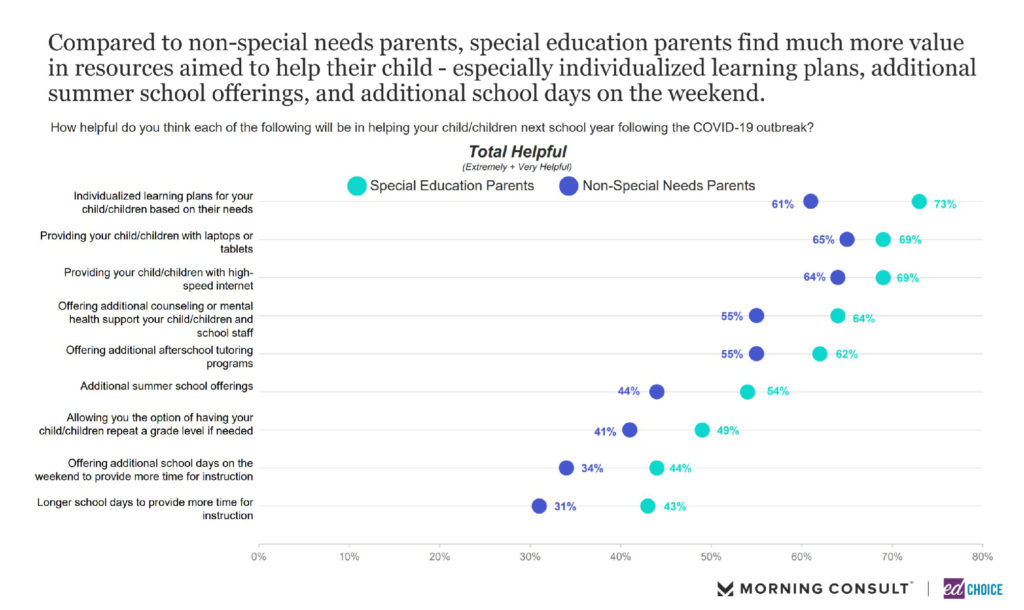
8. Special education parents are more than twice as likely as non-special needs parents to have delayed enrollment of kindergarten for any of their children. This finding is not necessarily specific to the child with special needs, and the delay could have occurred before the pandemic. The data are at least suggestive for differences between the two parent groups, regardless of the pandemic. Special education parents were about equally to cite reasons for delay based on readiness academically or emotionally; because of the coronavirus pandemic; or because of the age of the child.
